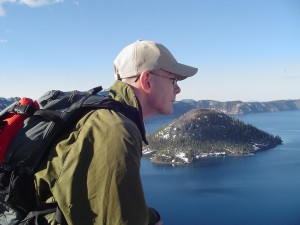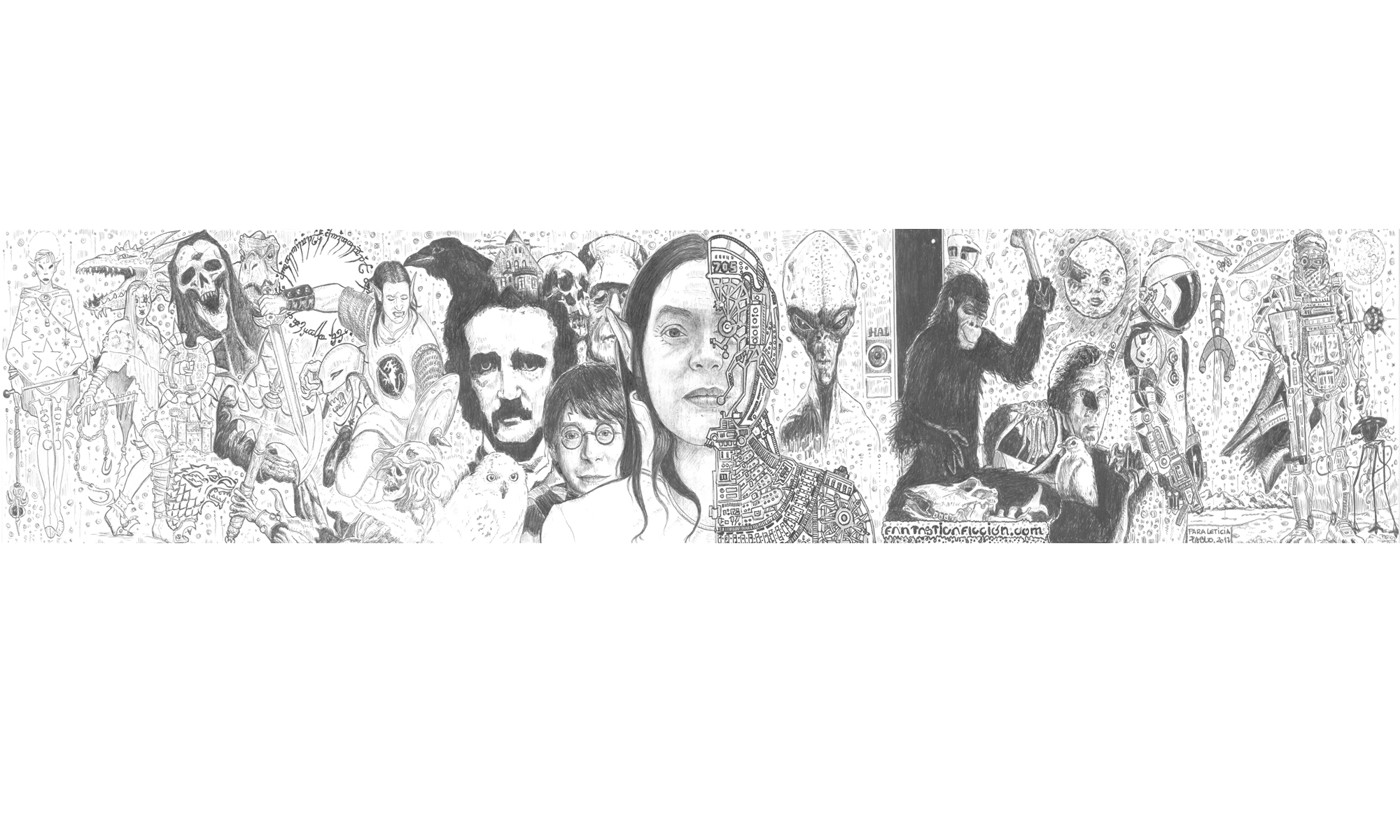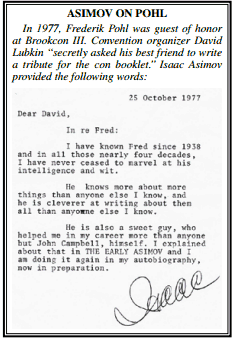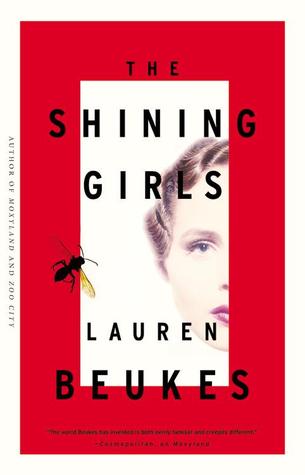 Hace unos días reseñamos “Strings on a shadow puppet” y su autor nos ha concedido una interesantísima entrevista que os ofrecemos a continuación. Puedes leer esta entrevista en inglés.
Hace unos días reseñamos “Strings on a shadow puppet” y su autor nos ha concedido una interesantísima entrevista que os ofrecemos a continuación. Puedes leer esta entrevista en inglés.
¿Cuándo supiste que querías ser escritor?
Siempre me han gustado las historias, especialmente la ficción especulativa (ciencia ficción, fantasía y demás), pero realmente empecé a escribir a los 12. En ese momento descubrí a Tolkien, que realmente despertó mi imaginación. Escribí una horrible aventura fantástica basada en las leyendas artúricas que todavía tengo guardada en alguna caja perdida y seguí escribiendo desde entonces.
Sin embargo, en la universidad tuve que elegir: ¿ser escritor o antropólogo? Entonces decidí escoger el camino de la Antropología – Arqueología porque pensé que me podría ganar la vida y siempre tendría un hueco para escribir. Por supuesto, no me di cuenta ni de lo masificada que estaría la profesión académica en las siguientes décadas ni de lo poco que se puede escribir cuando se vive en tiendas de campaña y moteles por todo el mundo. Así que, durante años, la escritura fue un hobby al que me dedicaba ocasionalmente, mientras ayudaba a algunos autores realmente talentosos a crear y profundizar en sus mundos fantásticos.
Después de finalizar mi doctorado, y durante el proceso de fundación del departamento de Geomática en Arqueología en Oxford, volví a dedicar más tiempo a la escritura. Lo hice para aliviar el estrés, para ser honesto, pero lo que ayudó a que me lo tomara más en serio fue el reciente éxito de Alastair Reynolds que me hizo pensar: “quizá un investigador serio también puede ser publicado”.
Así que, mientras publicaba dos libros académicos y unos cuantos artículos realmente aburridos, empecé a escribir lo que acabaría siendo “Strings on a Shadow Puppet”. Por supuesto, lo que escribí necesitó una gran dedicación para convertirse en lo que realmente publiqué, y el punto de inflexión fue cuando me mudé a Oregón y coincidí con un maravilloso grupo de escritores llamado Wordos. Así es como convertí un libro que tenía potencial en una novela para publicar.
¿Qué otros autores te han influído?
Bueno, gracias a Tolkien me dí cuenta de que se puede crear un mundo con lógica interna pero que no necesita utilizar metáforas modernas. Tolkien nunca se refiere a cosas de nuestro mundo en sus libros, solo cosas de su mundo. Eso tuvo un gran impacto en la creación de mis mundos.
Aún así, el primer autor que me enamoró, el que probablemente haya tenido un impacto estructural más profundo en mí, fue Sir Arthur Conan Doyle y su famosa creación Sherlock Holmes. De niño devoré todos sus libros y todavía recuerdo lecturas conjuntas de sus misterios con mis padres por orden de publicación. El impacto es patente en mis libros, creo. Misterios, intriga y demás, obviamente representan un papel importante en mi novela y realmente estas influencias se remontan a Doyle. Lo que es más, él nunca, o casi nunca, hacía trampas en sus misterios. Todas las pistas estaban en el texto, no había información oculta y eso es lo que trato de hacer en mis libros; esconder la verdad en las palabras, no en su ausencia.
Otra influencia, quizá más grande es John LeCarré. Lo conocí literariamente en mi juventud y sus historias oscuras y moralmente ambiguas de espionaje en la Guerra Fría atraparon mi imaginación. Esto fue al principio de los ochenta del siglo pasado y el realismo sucio de sus libros probablemente se muestra en mi trabajo.
Por supuesto mis libros no muestran el conocimiento implícito del tema del que él hace gala. No solo porque están situados en un futuro de ciencia ficción, si no porque no tengo tanto tiempo para bucear en archivos y demás. A pesar de esto, gran parte de mi inspiración proviene de LeCarré y del mundo gris en el que se desarrollan sus historias de espías.
Ninguno de estos autores lo son de ciencia ficción y, sobre este extremo, debería mencionar a Robert Heinlein, Gene Roddenberry y en cierto sentido a George Lucas. Heinlein es el padre de la ciencia ficción militarista y sus comentarios velados, que tan a menudo se ignoran en sus primeros trabajos, están realmente colocados de forma inteligente. Lucas me hizo ver un futuro valiente y Roddenberry… Star Trek permanece asentada profundamente en mi memoria desde la infancia y creó mi visión de la ciencia ficción, por lo tanto, todavía admiro a Star Trek de una forma que no puedo explicar.
Y por supuesto, por supuesto, están los Wordos, el grupo de escritura del que afortunadamente formo parte en los últimos años. Jerry Oltion, Nina Hoffman y otros muchos del grupo han influído profundamente en mi estilo y mi habilidad. Supongo que soy parte del legado de Damien Knight y Kate Wilhelm.
¿Hay algún escritor actual al que admires?
Puede parecer gracioso, considerando que soy un escritor de género, pero me encanta el trabajo de Carlos Ruiz Zafón. Crea personajes que son tan atractivos que no quiero que sus libros acaben. Terminar una de sus novelas es como mudarse a otro país y dejar atrás amigos a los que nunca volverás a ver.
De forma similar, Umberto Eco es maravilloso. Sus escritos me enseñaron que se puede crear una historia que se puede leer en niveles diferentes. Cuando está en su mejor nivel, sus libros permiten al lector introducirse en estos niveles tan profundamente como desee. ¿Quieres una aventura o un misterio? Lee el libro es su nivel superficial. ¿Quieres comentarios sociales o espirituales? Bucea un poco más y encontrarás simbolismos entre las palabras. No puedo decir que yo lo haya conseguido, pero es algo por lo que lucho.
Y dentro de mi propio género: me encantan el trabajo de Alastair Reynolds, que como ya he dicho es un poco mi héroe personal. Después de todo, cambió de ser un investigador profesional a ser un autor y de esta forma me dio el coraje necesario para lanzarme al mundo editorial actual.
Por supuesto, también hay que tener en cuenta al gran Iain M. Banks, cuyas obras revitalizaron grandes espacios de la ciencia ficción, probando que se puede escribir tales historias en un estilo literario.
Ambos han hecho maravillas con el género space opera. Lo han abierto al comentario social más vanguardista. Si no hubiera sido por ellos y por sus editoriales, gran parte de la mejor ciencia ficción actual no existiría.
Ursula K. Le Guin también sigue escribiendo y es magnífica. Su trabajo siempre ha sido inspirador para mí. Escribe sobre gente, cultura e ideas de una forma que despertó al antropólogo en mí desde muy temprana edad. No solo sus conceptos e imaginería son fuertes, si no que el flujo de su lenguaje es admirable.
Recientemente, también me ha impresionado mi compañero indie Hugh Howey con su serie Silo. Personalmente, solo he leído el Wool Omnibus, pero fue muy inspirador y estoy ansioso por leer el resto de la serie.
Oh… hay tantos que podría llenar páginas y páginas con la lista. Estos son los que se me han ocurrido.
¿Cómo te documentas? ¿Dónde buscas la inspiración?
Mi documentación varía, dependiendo de lo que necesito en cada momento. Para ciencias biológicas, tengo un gran recurso en mi mujer, que es doctora en Medicina y tiene un doctorado en bioquímica de Oxford. La física, la astrofísica y demás son mi hobby, aunque a un nivel muy amateur. Me encantó “A Brief History of Time (Illustrated edition)”, de Stephen Hawking, que me resultó muy interesante. Por supuesto, para cualquier tema realmente profundo pregunto a uno de mis colegas o mis amigos de mis días en Oxford.
En el aspecto militar y de inteligencia, tengo varios amigos que me han ayudado con ello. Haber vivido en el extranjero durante mucho tiempo en muchos lugares te permite conocer a mucha gente, especialmente cuando se es arqueólogo, pero para ser honesto, mucho viene de mi padre. Él era historiador, pero antes de ser profesor trabajó para el Departamento de Estado de EE.UU. Como tal, tenía un percepción muy interesante del mundo de las relaciones internacionales, incluso del trabajo de inteligencia. Además, estos temas formaban el núcleo de las conversaciones en la cena, mientras crecía.
En cuanto a la inspiración, la encuentro casi en todos sitios. Algunos hechos como el trágico incidente con USS Vincennes y Iran Air Flight 655, el conflicto colombiano actual o las luchas en África y en los países árabes probablemente se muestran a lo largo de mi libro.
En un nivel más filosófico, sin embargo, “Strings on a Shadow Puppet” y el resto de la serie The Ripper’s Raiders son una mirada a conceptos como la democracia, los derechos humanos y la seguridad personal. Si lees mucha ciencia ficción pensarás que el American Way of Life es la evolución natural de la humanidad, pero creo que incluso para los propios estadounidenses no siempre significa lo mismo, aunque usen el mismo término, incluso en algo tan básico como la democracia. Otras culturas aplican un rango más amplio en sus definiciones.
Lo que es más, en occidente tendemos a adorar la individualidad por encima de todo lo demás, pero esto no es así en otras culturas. Incluso nuestras propias culturas no son siempre así. Creo que sería interesante examinar estos conceptos, y ¿qué mejor manera de hacerlo que en una aventura de ciencia ficción?
Por supuesto, aparte de los comentarios políticos y filosóficos, estoy escribiendo historias sobre gente, basadas en gente. Para conseguirlo, primero encuentro gente que me interese y luego escribo una historia a su alrededor.
¿Por qué empezaste a escribir tu blog? ¿Cómo escogiste el nombre?
 Para ser honesto, comencé mi blog (The Archaeologists’ Guide to the Galaxy) como una plataforma de marketing, una manera de que mi nombre fuera reconocido de forma que pudiera vender mis libros. Sin embargo, de una forma bastante rápido cobró vida propia. Por alguna razón se volvió bastante exitoso, mayoritariamente debido a la buena suerte y ahora siento la responsabilidad para con mis lectores de mantenerlo.
Para ser honesto, comencé mi blog (The Archaeologists’ Guide to the Galaxy) como una plataforma de marketing, una manera de que mi nombre fuera reconocido de forma que pudiera vender mis libros. Sin embargo, de una forma bastante rápido cobró vida propia. Por alguna razón se volvió bastante exitoso, mayoritariamente debido a la buena suerte y ahora siento la responsabilidad para con mis lectores de mantenerlo.
Después, tras el nacimiento de mi hijo, se volvió una parte importante de mi vida. Como cualquiera que tenga hijos entenderá, una vez que mi hijo llegó me encontré sin tiempo para escribir historias, por no mencionar novelas. En vez de eso, puse mis energías intelectuales y creativas en las reseñas de libros. Ayudó a que no me volviera loco. Desde ahí empezó a crecer aceleradamente, especialmente desde hace un año, cuando las visitas aumentaron mucho.
El nombre del blog vino casi inmediatamente. Siempre me gustó la serie de Douglas Adams Hitchhikers Guide to the Galaxy , especialmente el serial radiofónico de la BBC de los 80. Tras haber pasado 25 años como arqueólogo profesional pensé que sería una locura no usarlo para distinguirme de la multitud, así que el título vino por sí solo.
¿Tus conocimientos arqueológicos te ayudan en tus libros?
Sí, muchísimo. En primer lugar, quiero resaltar que fui arqueólogo profesional durante 25 años antes de empezar a escribir seriamente. Eso es mucho tiempo y me dio una perspectiva real de culturas diferentes, de la Historia e de las interacciones humanas.
También me dio una visión a largo plazo de la humanidad, ayudó a darme cuenta de que las culturas cambian constantemente y que, a pesar de lo que la gente suele pensar, los desarrollos tecnológicos vienen en saltos y comienzos. En ciencia ficción frecuentemente proyectamos cambios tecnológicos como un flujo incremental, pero no tenemos en cuenta los cambios reales es nuestros puntos de vista políticos o filosóficos. Y así no es como ocurre a largo plazo.
Si me preguntas, la tecnología cambia a acelerones y ahora mismo nos encontramos en uno que empezó con la revolución industrial. Sospecho que estos cambios se ralentizarán en algún momento y entraremos en un largo periodo de barbecho, aunque no sabría decir cuándo.
En el aspecto cultural, sin embargo, la mayoría de la ciencia ficción predice un movimiento hacia una América pangaláctica donde todo el mundo habla inglés. Aunque hay claras analogías con el presente en el mundo que he creado, intento no asumir estos principios. Como resultado, la democracia es una opción política en mi mundo, pero ni es la única ni es la dominante.
Más aún, mi pasado arqueológico me da inspiración desde diferentes culturas. Miro a culturas actuales o pasadas y las cambio para mis propósitos. Un poco, para civilizaciones humanas futuras, y mucho, para culturas alienígenas.
Aún diría más: creo que el mayor impacto que la arqueología ha tenido en mis libros es la experiencia de vivir en un grupo pequeño con gente altamente especializada en condiciones aisladas durante largos periodos de tiempo. Supongo que eso es de lo que van mis historias en realidad, no tanto los comentarios sociales y políticos sino las relaciones personales entre individuos que viven circunstancias extremas.
 Sé que hiciste arqueología subacuática, ¿te ayudó a limpiar tu mente y concentrarte en lo que quieres conseguir?
Sé que hiciste arqueología subacuática, ¿te ayudó a limpiar tu mente y concentrarte en lo que quieres conseguir?
Cualquier tipo de arqueología haces eso. Existe un cierto Zen en la arqueología, principalmente cuando estás en las fases iniciales de las búsquedas. En estos casos, especialmente en los que se realizan en América del Norte, lo que haces es excavar durante semanas sin encontrar nada. Una vez calculé que había excavado un kilómetro cúbico de suciedad estéril… agujeros sin nada. Por supuesto, también he excavado en algunos de los mejores sitios imaginables: pirámides mejicanas, enterramientos célticos, sitios iroqueses en el lugar de nacimiento de la legendaria nación Seneca; lugares maravillosos. Estos ayudaron a mi carrera arqueológica, pero fueron esas millas y millas de nada las que me ayudaron con mis escritos. Pasaba días y días encontrando NCM (no cultural material), dejando mi imaginación vagar mientras que me concentraba en la tarea.
¿Las redes sociales son importantes para tus relaciones con otros autores y con tus lectores?
Sí. Hoy en día las redes sociales son importantes para todo. Son claves para darte a conocer como autor. Con mi propio blog he conseguido darme a conocer a algunos escritores de renombre en el género, pero el factor más importante de los blogs – facebook, twitter y demás- es promover mi nombre y mi trabajo, y los más importantes blogs como el tuyo son de los más importantes.
¿Quieres que la gente sepa acerca de mis libros? Haz que los lean y escriban sobre ellos. Mucho mejor que cualquier anuncio. En este época tecnológica, donde cualquier idiota puede auto-publicarse, los blogs que reseñan libros son los guardianes. Hacen el trabajo que los editores solían hacer (y que, para ser justos, siguen haciendo) especialmente con los libros auto-publicados.
¿Por qué decidiste auto-publicarte?
Para ser honesto, dudaba. Había mandado la novela a un par de editoriales grandes y parecer ser que su mezcla de géneros era un problema. Estaba pensando en seguir con la lista de editoriales, como hace la mayoría de la gente, pero muchos de los grandes autores que conozco, aquellos que ya han firmado por TOR, ACE o BAEN, me sugirieron que probara a hacerme Indie (Independent Publishing, el nombre guay en inglés para los que se auto-publican). Estos autores me hicieron ver que la gente estaba teniendo mucho éxito y que las editoriales tradicionales tenían serias reservas hacia los trabajos que mezclaban géneros (no estoy seguro de que mi novela sea así, pero así la llamaban) Así que seguí su consejo y aquí estoy.
¿Qué puedes decirnos sobre Wordos?
Wordos es un grupo de escritura asombroso en Eugene, Oregon (EE.UU.). Fui lo suficientemente afortunado como para unirme a ellos cuando estaba revisando mi novela. Se centra en ficción especulativa (ciencia ficción, fantasía, horror y demás), especialente en formato corto y cuenta con varios escritores premiados. Sigue una guía muy estricta en los procesos de revisión y hay un gran número de escritores de renombre muy respetados que van a los talleres para compartir su visión y experiencia con los demás. Gente como Jerry Oltion, Nina Hoffman, Jay Lake y algunos más son miembros que acuden o han acudido de forma regular.
La verdadera fuerza del grupo, de todas formas, no son los autores conocidos y los premiados, sino el formato que se sigue. Después de todo, muchos de los miembros no son ganadores de premios sino escritores noveles y algunas veces son sus puntos de vista los que aportan más a una historia.
Wordos se reúne todas las semanas y los miembros se apuntan para mandar historias a revisión. Se da oportunidad a todo el mundo, y de hecho, todos tienen que enviar al menos dos o tres historias para que se les permite ser miembro de pleno derecho del grupo. Antes de que puedas mandar nada debes escuchar una reseña de una historia que has leído y comentar las historias de otra gente durante dos semanas. Solo entonces puedes mandar tus historias (preferiblemente una después de la otra). Una vez hecho esto, si todavía tienes estómago para volver, se te acepta como miembro del grupo (sin importar lo buenas que sean tus historias). El formato que seguimos está basado en la escuela de crítica Clarion y no permite el comentario personal o las comparaciones. Los escritores no pueden comentar, preguntar o justificar nada durante el proceso de revisión, pero pueden pedir aclaraciones al final.
Esto funciona muy bien y construye una relación de trabajo muy buena, limitando los problemas personales que he visto surgir en otros grupos. Su web tiene información muy interesante.
¿Se ha puesto en contacto contigo alguna editorial española para traducir tu libro?
No, pero estoy muy interesado, o incluso en llegar a un acuerdo con un traductor independiente. Siempre he pensado que este libro en particular se vendería bien en el mercado hispanohablante, en España y Sudamérica. Después de todo, gran parte del libro fue inspirado por la situación política actual y los conflictos armados en Sudamérica, así como en Irlanda, África y Asia.
¿Puedes explicarnos por qué decidiste retrasar la fecha de lanzamiento de tu libro?
Ah. Sí. Es una historia muy triste.
Lo tenía todo preparado para lanzar mi libro justo antes de Navidad del año pasado cuando ocurrió una tragedia absoluta en Sandy Hook, Connecticut. Un hombre de veinte años entró en una escuela de primaria y comenzó a disparar indiscriminadamente. Murieron 28 perosonas, sin incluir al propio asesino, 21 fueron niños entre seis y siete años.
Como ya sabes, la primera escena de mi libro incluye la explosión de una bomba en una escuela. Cuando lo escribí, pensé que era la peor cosa imaginable y que me había pasado un poco. Pero resultó ser demasiado parecido a la realidad.
Publicar una historia con ese comienzo en ese momento hubiera sido poco respetuoso, pero además resulta que tengo una relación personal con Sandy Hook. Hace unos 12 años, le pedí matrimonio a mi mujer allí. En ese sitio tuvo lugar mi fiesta de compromiso. Demonios, mi sobrino iba a esa escuela.
Incluso si no hubiera tenido ese lazo personal con la ciudad, hubiera sido de mal gusto lanzar mis libro justo tras las muertes. Así que lo paré durante dos meses. Incluso me pareció demasiado pronto, pero sospecho que siempre me lo parecerá.
Creo que fue una muy buena idea llevar a cabo un concurso para decidir cuál sería la portada de tu libro, ¿tienes pensado hacerlo otra vez?
Tengo mis dudas sobre eso. El éxito fue tan grande la última vez que me tienta a seguir con Kevin Klakouski, el ganador de la competición. Kevin tiene mucho talento, es hábil y resulta muy divertido trabajar con él. Aporta su propia visión al proyecto pero permite que haya cambios. Le interesa más producir un trabajo de calidad que cumpla lo que se le pide que solo crear su visión artística. Su propia obra, sin inspirarse en nada más que en sí mismo, ya es muy bueno de por sí. Quizá es por esto por lo que es capaz de renunciar a su ego y crear lo que otros necesitan.
A pesar de esto, el concurso funcionó y el resultado fue lo que el también escritor Jacob Boyd define como “Crazy Good cover art”. Además, me encanta la idea de dar proyección internacional a artistas nuevos. Realmente fue muy interesante tener acceso a todas estas visiones e ideas presentadas al concurso. Hacerlo otra vez sería muy divertido. Ya veremos. Falta un año para publicación del siguiente libro.
¿Qué puedes decirnos de tus nuevos proyectos? ¿Va a existir la Encyclopedia Sophynensis?
Ahora mismo estoy trabajando en “The Traitor’s Gambit”, algo parecido a una secuela de mi primera novela. Continúa la historia de algunos de los personajes principales, explorando en detalle sus motivaciones y avanzando sus historias personales. Por supuesto, escribí “Strings on a Shadow Puppet” para que se pudiera leer de forma independiente y tiene su propia conclusión, de modo que la secuela se construye sobre esa base, respondiendo a algunos de los cabos sueltos del final del libro y dando lugar a nuevas historias.
Curiosamente, tengo borradores bastante avanzados de los libros tres y cuatro esperándome. Pero antes de eso, tengo que escribir el libro dos porque, mientras editaba “Strings on a Shadow Puppet” tuve que dejar fuera ciertos temas para aumentar la tensión (no puedo decir más sin spoilers, pero seguro que sabes a qué me refiero). Ahora necesito cerrar los arcos argumentales de estos personajes antes de que empiece el tercer libro.
Así que, una vez que publique “The Traitor’s Gambit”, tardaré bastente menos en terminar los siguientes libros. Aún así, todos son autoconclusivos. No habrá cliffhangers durante seis o siete años como hacen otros autores… o eso creo ahora.
Sobre la Encyclopedia Sophynensis, ya existe, pero como un borrador. La he escrito como una suerte de guía de continuidad, un libro de referencia para asegurarme de que no cambio nada de un libro a otro. Compilarlo para su publicación es un tema muy distinto. Necesitaría mucho esfuerzo que prefiero dedicar a escribir las historias que describe.
Cuando acabe la serie o al menos cuando esté más avanzada, me gustaría sacarla como guía. De momento, seguiré centrándome en las novelas. Aún es más, pretendo incluir un glosario en los libros siguientes y en la segunda edición de “Strings on a Shadow Puppet” para explicar algunos de los términos militares o específicos del mundo que utilizo.
Queremos reiterar nuestro agradecimiento a T.L. Evans por su amabilidad al responder a nuestras preguntas. No dejéis de leer su libro “Strings on a shadow puppet”.







